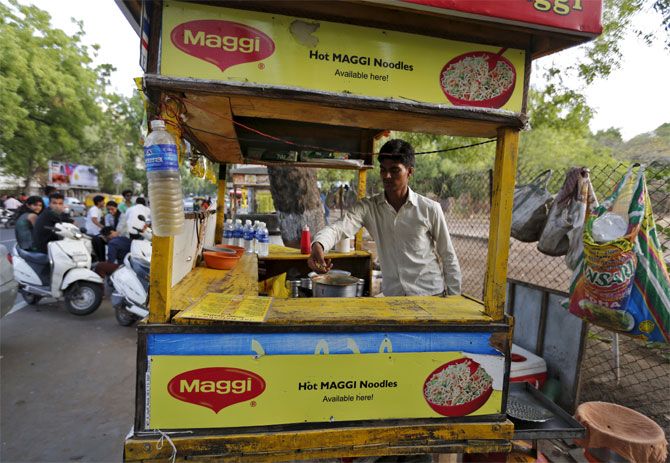Experts believe market launches can now happen seamlessly and quickly if FSSAI is removed from the process.
 The Food Safety and Standards Authority of India (FSSAI) has stated it would not continue with the process of product approvals, citing a Supreme Court order, thereby allowing food and health care products to be launched freely in the market.
The Food Safety and Standards Authority of India (FSSAI) has stated it would not continue with the process of product approvals, citing a Supreme Court order, thereby allowing food and health care products to be launched freely in the market.
The FSSAI notification said, “It is no longer possible for the FSSAI to continue with the process of product approvals, which was facilitated through the advisory dated May 11, 2013, in view of the order dated August 19, 2015, of the Supreme Court, whereby the judgment and the order dated August 1 of the Bombay High Court has gained finality and the said advisory has ceased to remain operative.”
Food companies have been upset with the regulator for delayed approvals and vetting. The industry’s concerns peaked after the FSSAI in June ordered the recall of Nestlé India’s Maggi noodles. The Bombay High Court earlier this month asked Nestlé to have its instant noodles tested in three accredited laboratories.
Asked to interpret the notification issued last evening, an FSSAI official said, “Companies understand the law very well, in fact better than us.” He added the food companies’ battery of lawyers could interpret the law for them. Most food and health care companies feel with the FSSAI being removed from the process of product approval, market launches will now be quick.
R K Sanghavi, chairman, neutraceutical sub-committee, Indian Drug Manufacturers’ Association of India, said, “With the product approval advisory of May 2013 scrapped, companies go back to what existed before it was issued, which means they can launch products without any delay.” Sources said health supplements like Ranbaxy’s Revital and food and dietary supplements from Herbalife and Amway were waiting to make their way back into the market after the Supreme Court verdict. The FSSAI had rejected these products citing health and safety risks.
V A Savangikar, a Mumbai-based food expert who advises companies, said the Food Safety and Standards Act, 2006, was complete enough to permit food and health care launches.
“The 2011 regulations that operationalise the 2006 Act are detailed and if there is any ingredient outside its purview, companies should write to the FSSAI providing a detailed explanation of why it is included. If there is an issue, the FSSAI will revert. If not, the company is free to launch the product,” he added.
Asked if the regulator could order recall of contaminated or adulterated items in the new arrangement, the FSSAI official said, “Recall is the obligation of the companies concerned.” The FSSAI had ordered a nationwide recall of Maggi noodles as samples were allegedly found to contain monosodium glutamate and excessive lead.
Asked what the FSSAI’s new role would be, the official said, “We will act according to the law, whatever the notifications permit us to do.” On moving the Supreme Court against the Bombay High Court verdict on Nestlé, the official said, “There is no decision yet.”
A little relief?
Experts believe market launches can now happen seamlessly and quickly if FSSAI is removed from the process.
Food companies have been upset with the regulator for delayed approvals and the vetting process that they had to go through.












 © 2025
© 2025